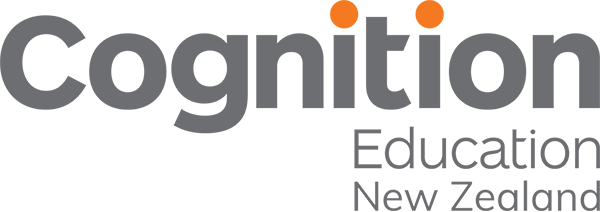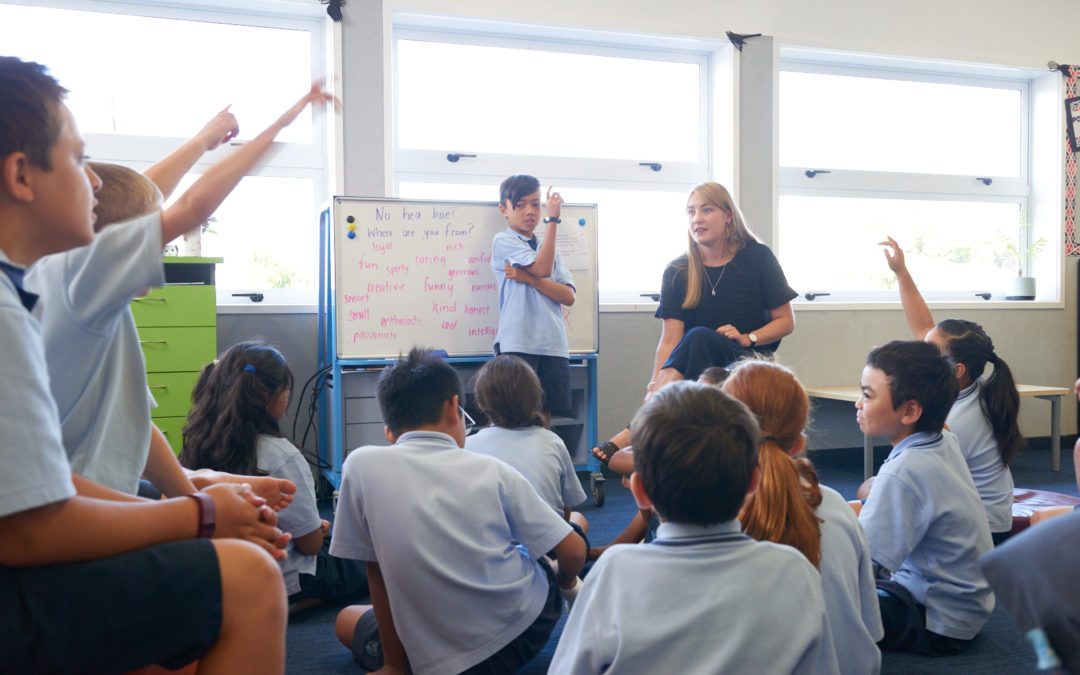As we celebrate moving out of lockdown, we need to take the time to reflect and build on any lessons learnt. We have this window of opportunity to pause before we default to the pre-COVID norm and respond to the learnings from the distance learning experience. There is also the realisation that we are opening our schools before most of the rest of the world, what have we learnt that could advise and guide them, what will we show them?
Educators now realise how agile and adaptable they can be. The response of schools to ensure that learning and care for wellbeing continued throughout lockdown was immense and impressive. There is a palatable sense of justifiable pride amongst educators at what was achieved in such a short period of time. Undoubtedly, the uncertain conditions we found ourselves in created a perfect breeding ground for new hope and a desire to do things differently as we move forward.
Wanting to build on this momentum, and keep this significant window of opportunity unlatched, we initiated three Zoom conversations with approx. 35 school leaders across Aotearoa to gather and share stories and experiences. These conversations included representatives from Primary, Intermediate and Secondary schools. What follows is a summary of the voices that school leaders heard from their communities.
The voice of the Board of Trustees
>> Boards spoke of their immense pride at what their schools and staff achieved.
>> There was a feeling of gratitude and appreciation of teachers who accepted the extra workload and testing conditions with professionalism and aroha.
>> There was a concern about the wellbeing of tired teachers and students from whānau who are going through continued difficulties.
>> There was an increased awareness of how the lockdown heightened and emphasized an existing concern, that of the inequities evident within our communities. The access to reliable internet and the ability to access devices were concerns that lockdown shone the spotlight on.
Boards of Trustees are often seen as being somewhat distanced from the day to day reality of school but they are a legitimate gauge of the feeling within the community served by each individual school; therefore their voices, full of gratitude, for the teachers’ agility need to be heard.
There were two recurring concerns articulated by all members of a school community irrespective of their geographical location. Firstly, a concern over equity and a worry that this experience only highlighted disparities between the haves and the have-nots in relation to digital access. There was also a concern about wellbeing. There was, however, a lack of specifics regarding the concerns about wellbeing across all groups, it remained a general concern rather than a specific one.
The voice of the Whānau
>> Many commented on how much they learnt about their own children and in particular to how they learned.
>> Sometimes these ‘learnings’ were very specific around behavioural and learning styles; for example, aspects like their child’s ability to focus.
>> There was a stronger understanding [and appreciation] of the role of the teacher.
>> Many gained a new understanding of what is involved in the learning process.
>> Many commented on how much they enjoyed learning along with their children and enjoyed having the opportunity to be involved directly in their child’s learning.
>> They stressed the need for improved, continued/regular/sustainable communication between school and home.
>> Again wellbeing was a theme. This focused on their child’s return to physical school.
>> There were also some concerns around access to, and use of IT. In extreme cases there was some questioning of the effectiveness of the delivery presented. Overall though whānau were very appreciative of all that schools did.
One of the common threads centred on the change in the school/home relationship. Many appreciated the direct and regular contact on a more personalised level. Comments were made about an enhanced relationship, even a partnership that they hoped would be maintained. It is possible that the fact that teachers became guests (albeit ‘virtual’ ones) in the homes of the students may have contributed to an effect on the relationship dynamic.
The voice of the Students
>> There was a huge range of responses reported. Some students hated the experience and felt lost, at the other extreme many loved it and wanted to continue with the distanced style of learning.
>> The positive aspects that were highlighted centred on the flexibility distance learning offered and agency. Choice of task, the ability to go ‘deep’ and delve into learning and the flexibility of being off a tight timetable were all elements that were commented on in a positive manner.
>> In particular the element of ‘choice’ was mentioned a number of times [choice related to time and topic].
>> As a result of this flexibility and the ability to manage their own time, many reported a decrease in the pressure that they often felt when in a physical school.
>> More senior students did express some anxiety about having fallen behind with hotter assessments and this seems to equate to an NCEA anxiety.
>> Comments on how beneficial the use of platforms like Zoom with breakout rooms and interactive capacities were noted.
>> Again many articulated their sincere appreciation of all that their teachers did for them.
>> There was a general feeling that they had missed the social aspects of school and had missed their friends and the ‘normality’ of school life.
For many young people attending a physical school is an important part of their social development and it became very obvious that students had missed this. The other key ‘voice’ was that in a more flexible learning environment learners felt that they were able to have more control over their learning. Now the question is, how do we as a profession ‘maintain the gains’ made in this more flexible, learner centred environment as we return to our physical schools.
The voice of the Staff
>> Many expressed a concern over wellbeing [themselves and their students]. On a personal level, many were tired as a result of the demands that went with their rapid and sustained response to lockdown.
>> They were proud of their adaptability and agility and felt that they had’ stepped up’. This was reinforced by all members of the school communities.
>> Some loved the freedom of lockdown distance learning; others could hardly wait to get back.
>> There was a fear that the ability to ‘maintain the gains’ was going to be lost and that they were destined to get back in the hamster wheel as soon as physical school re commenced.
>> Some felt that they had the opportunity to see many of their students in a different light and learn things about them, as people and learners that they might not have in a pre-lockdown environment. This enhancement of the learning relationship was something that they were keen to explore.
>> Like whānau, they stressed the need for improved, continued/regular/sustainable communication between school and home.
>> They also expressed a concern about how learning can be restricted by inflexible timetables.
>> Like Boards of Trustees, there was an increased awareness of how the lockdown heightened and emphasized an existing concern, that of the inequities evident within our communities. The access to reliable internet and the ability to access devices were concerns that lockdown shone the spotlight on.
Teachers are tenacious, and they care…deeply. This meant that they ensured that their students were able to continue with their learning in a caring [if distanced] environment. But this care comes at a cost and that cost was articulated as a concern over wellbeing and a fear that the learnings made during lockdown would not be reflected on and that we would quickly return to the ‘old’ normal again. An opportunity lost.
The voice of the Principals
>> There was a general desire to reflect and explore how they could deliver learning ‘differently’, the phrase ‘maintain the gain’ was one offered by a Principal in one of the conversations.
>> They were also very proud of their staff and communities, but also concerned about staff and student wellbeing. Again this tended to be of a general rather than a specific nature, but there was a fear that anxieties would continue to surface and emerge well after lockdown ended.
>> Many were proud of how tight the senior leadership had become and how well they had responded to the numerous demands of lockdown.
>> Like whānau, they stressed the need for improved, continued/regular/sustainable communication between school and home.
>> Like Boards of Trustees, there was an increased awareness of how the lockdown heightened and emphasized an existing concern, that of the inequities evident within our communities. The access to reliable internet and the ability to access devices were concerns that lockdown shone the spotlight on.
>> They acknowledge that the Ministry has been fantastic at communicating but sometimes the timing and requests made by the Ministry increase pressure rather than achieving the desired alleviation of it.
Principals are well aware of the need to continue to review existing approaches to learning in schools and where necessary implement changes to ensure the continued relevance of what and how learning is delivered. Lockdown tended to emphasise and reinforce this, but the way forward is not obvious or clear. The why is there, but the how and the what often remain elusive.
So what are these voices telling us? What lessons have we learned?
Lockdown Lesson #1
Nothing is impossible for our tamariki: Developing learner agency, accountability, independence and curiosity should be a focus regardless of the learning location or situation.
Lockdown Lesson #2
Shared experiences gave us a shared understanding: Having something in common, globally, locally and nationally encouraged us all to talk and share our experiences and findings.
Lockdown Lesson #3
Time well spent: Slowing down invited conversations around busy routines and timetables. Suddenly, those ringing bells decided to swap their menacing schedules to one that allows flexibility and choice as school doors reopened.
Lockdown Lesson #4
Ignited teacher Inquiry: Educators questioning what they ‘usually do’ and exploring how these new experiences might contribute to a new way of doing things.
Lockdown Lesson #5
Strengthening bonds with empathy: Empathy and a wider picture of all of our home lives sparked more conversations between teams.
Within these lessons lies the opportunity for schools to explore in more detail how to address, as a school, concerns about issues such as wellbeing and learner agency and dig deeper into how to develop a coordinated approach to wellbeing and the development of learner agency.

